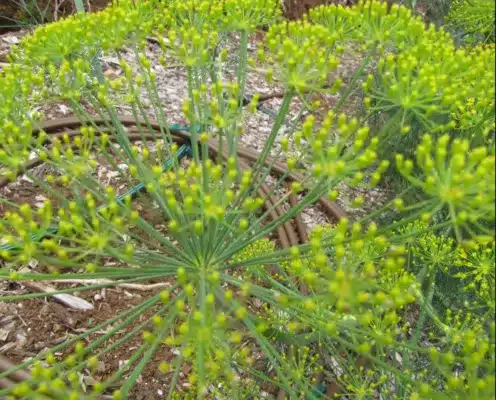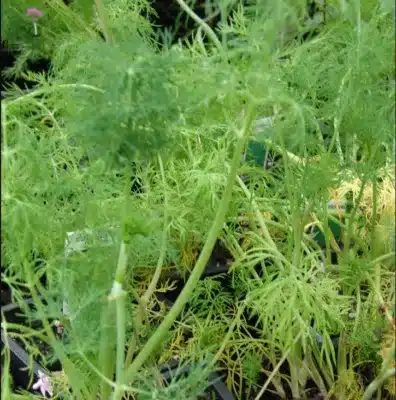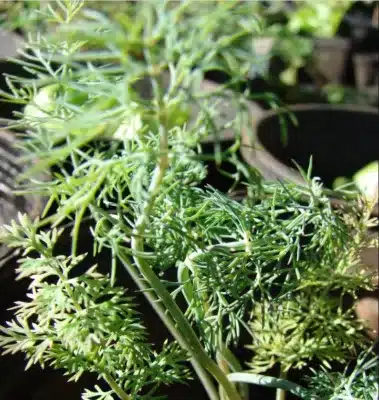Dill leaves-Discover the Culinary Magic: Freshness and Flavor Unleashed in Every Dish with Nutritional and Health Benefits
Sombu keerai in Tamil and Hindi it is known as Soya or Sav
Table of Contents
Origin
Dill (Anethum graveolens) is an herb that is believed to have originated in the Mediterranean region and southeastern Europe. It has a long history of cultivation and use, dating back to ancient times. The exact origin of dill is difficult to pinpoint due to its widespread cultivation and naturalization over the centuries.
Throughout history, dill has been utilized for both culinary and medicinal purposes. The ancient Egyptians, Greeks, and Romans were known to use dill for its culinary properties, as well as for its supposed medicinal benefits. Its popularity as a culinary herb continued to spread throughout Europe and Asia over the centuries.
Dill is a member of the Apiaceae family, which also includes parsley, celery, and carrots. The plant is characterized by its feathery, fern-like leaves, and it produces small yellow flowers in umbrella-shaped clusters. Both the leaves and seeds of the dill plant are used in cooking, each imparting a slightly different flavor profile to dishes.
In modern times, dill is cultivated in various parts of the world with suitable climates. It is a cool-season herb that thrives in well-drained soil and prefers full sunlight. Dill is commonly grown in home gardens and is also commercially cultivated for its use in the culinary industry. Its versatile and distinct flavor makes it a popular addition to salads, sauces, pickles, and various dishes, contributing a fresh and slightly tangy taste to the culinary repertoire.
Dill leaves can be used fresh or dried. Fresh dill leaves are more flavorful, but they have a shorter shelf life. Dried dill leaves can be stored for up to six months in a cool, dry place. They are often used to flavor fish, seafood, and vegetables. Dill leaves can also be added to soups, stews, and sauces. Dill leaves are a popular garnish for dishes such as salmon, roasted potatoes, and yogurt. Dill leaves are a delicious and nutritious herb that can be added to a variety of dishes. They are a great way to add flavor and freshness to your cooking.
As to my knowledge, it is cooked with lentils and my favorite with potato. This has a very astonishing effect on our health as we discover further.

Nurients
Nutrients
Leaves are a nutritious herb that can be a great addition to your meals. Here’s a breakdown of their nutrients, including calories and the daily values (DV) for various essential minerals and vitamins:
Calories: Dill leaves are very low in calories. A 100-gram serving of fresh dill leaves contains approximately 43 calories.
Vitamin C: Leaves are a good source of vitamin C, which is essential for the growth, development, and repair of all body tissues. Known to be an antioxidant, helps us defending our cells from danger. A 100-gram serving of fresh dill leaves provides about 85 milligrams of vitamin C.
Manganese: Manganese is an important mineral that plays a role in bone formation, blood clotting, and reducing inflammation. Dill leaves contain a modest amount of manganese. A 100-gram serving offers around 1.3 milligrams of manganese.
Vitamin A: Dill leaves contain vitamin A in the form of beta-carotene, which is important for maintaining good vision, a healthy immune system, and skin health. A 100-gram serving of fresh dill leaves contains approximately 7717 international units (IU) of vitamin A.
Folate: Folate is a B vitamin that is essential for DNA synthesis and repair, as well as cell division. A 100-gram serving of leaves provides about 150 micrograms of folate.
Minerals:
Calcium: Crucial for bone health and muscle function.
Potassium: Supports heart health and helps regulate blood pressure.
Manganese: Contributes to bone formation and metabolism.
Please note that the actual nutrient content may vary slightly depending on factors such as the plant’s growing conditions and the specific variety of dill. Incorporating dill leaves into your diet can provide you with a variety of essential nutrients while adding flavor to your dishes.


Benefits
Unlocking Health Brilliance: The Remarkable Benefits of Dill Leaves
The leaves, celebrated for their distinctive flavor, also offer a plethora of health benefits that make them a valuable addition to your diet. Here’s a closer look at the goodness packed into these vibrant green herbs:
Rich in Antioxidants: Leaves are loaded with antioxidants that combat oxidative stress, protecting your cells from damage and supporting overall health.
Immune System Support: Abundant in vitamin C, leaves contribute to a robust immune system, helping your body ward off infections and illnesses.
Bone Health Booster: The combination of calcium and vitamin K in dill leaves promotes strong and healthy bones, reducing the risk of bone-related issues.
Digestive Harmony: Dill leaves contain fiber that aids in digestion, preventing constipation and promoting a healthy gut.
Heart-Friendly Properties: Potassium in leaves supports heart health by helping regulate blood pressure and promoting proper cardiovascular function.
Blood Iron Boost: Adequate iron content in dill leaves contributes to the formation of red blood cells, preventing anemia and ensuring optimal oxygen transport in the body.
Anti-Inflammatory Magic: The presence of flavonoids and monoterpenes in leaves provides anti-inflammatory benefits, potentially alleviating conditions associated with inflammation.
Calming Effects: Dill has been traditionally recognized for its calming properties, aiding in stress relief and promoting relaxation.
Diuretic Action: Leaves act as a natural diuretic, supporting kidney function and assisting in the elimination of toxins from the body.
Weight Management Ally: With low-calorie content and high fiber, dill leaves can be a beneficial addition to a weight-conscious diet, promoting a feeling of fullness.
Incorporate the vibrant and aromatic dill leaves into your meals to not only elevate the taste but also to harness these health-boosting advantages. From supporting your immune system to fortifying your bones, dill leaves bring a burst of wellness to your plate.
